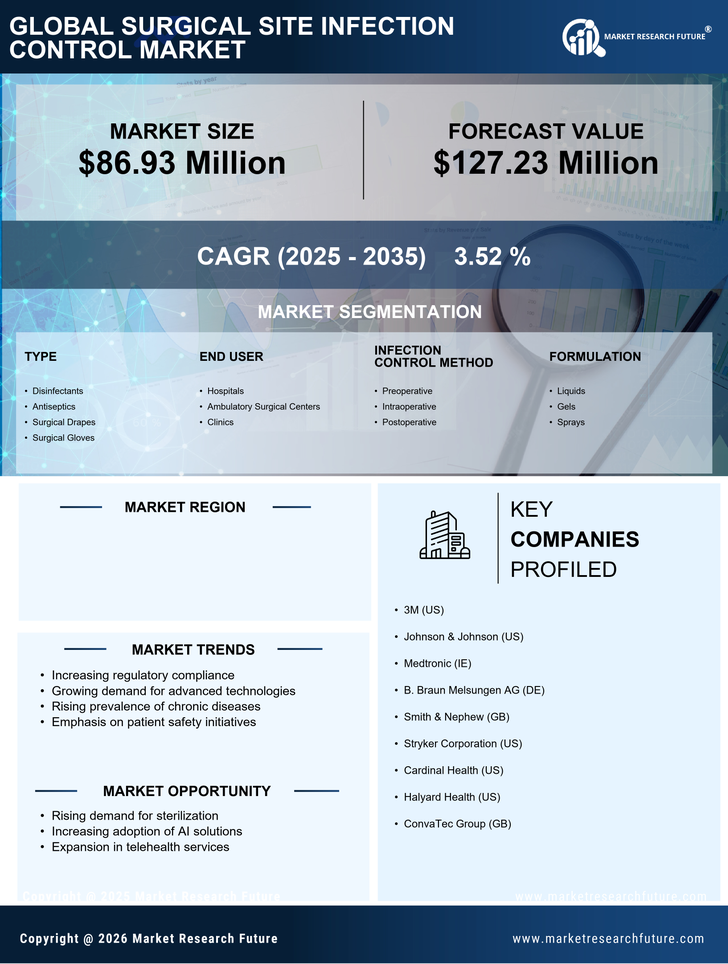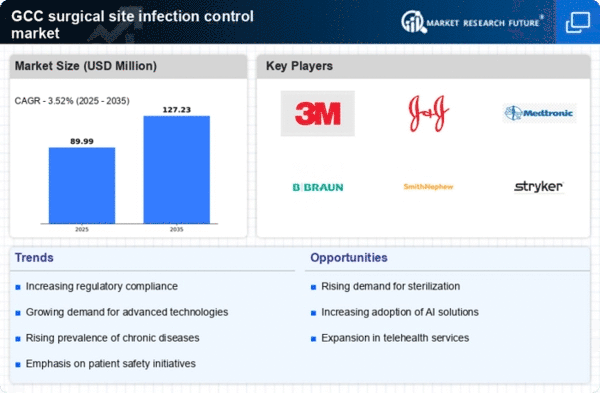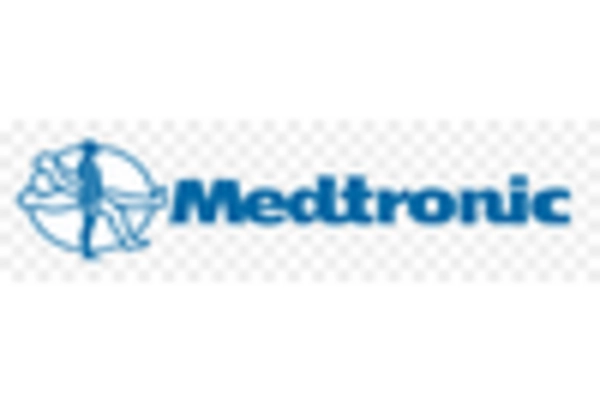Increase in Surgical Procedures
The increase in the number of surgical procedures performed in the GCC region is a significant driver for the surgical site-infection-control market. As the population grows and healthcare access improves, more individuals are undergoing surgeries, ranging from elective to emergency procedures. This surge in surgical activity correlates with a heightened risk of SSIs, prompting healthcare providers to prioritize infection control measures. According to recent data, the number of surgeries in the GCC is expected to rise by 15% over the next five years. Consequently, this trend is likely to boost the demand for infection control products and services, thereby propelling the surgical site-infection-control market.
Growing Awareness of Infection Prevention
The rising awareness regarding the importance of infection prevention in surgical procedures is a key driver for the surgical site-infection-control market. Healthcare professionals and patients alike are increasingly recognizing the risks associated with surgical site infections (SSIs). This heightened awareness is leading to the implementation of stringent infection control protocols in hospitals and surgical centers. As a result, the demand for effective infection control products and solutions is expected to grow. In the GCC region, studies indicate that SSIs can increase hospital stays by 7-10 days, leading to additional healthcare costs. Consequently, healthcare facilities are investing in advanced infection control measures, thereby propelling the surgical site-infection-control market forward.
Focus on Patient Safety and Quality of Care
The emphasis on patient safety and quality of care is increasingly influencing the surgical site-infection-control market. Healthcare institutions in the GCC are prioritizing initiatives aimed at enhancing patient outcomes and minimizing the risk of SSIs. This focus is often driven by both ethical considerations and the need to comply with accreditation standards. Hospitals are implementing comprehensive infection control programs that include staff training, monitoring, and the use of high-quality infection control products. As a result, the surgical site-infection-control market is likely to experience growth as healthcare providers seek to improve their infection control practices and ensure the highest standards of patient safety.
Technological Advancements in Infection Control
Technological advancements are playing a pivotal role in shaping the surgical site-infection-control market. Innovations such as automated sterilization systems, real-time monitoring devices, and advanced antimicrobial coatings are becoming increasingly prevalent in surgical settings. These technologies enhance the effectiveness of infection control measures and reduce the risk of SSIs. In the GCC region, the market for such advanced technologies is projected to grow at a CAGR of approximately 8% over the next five years. As healthcare facilities strive to improve surgical outcomes and patient safety, the adoption of these technologies is likely to accelerate, further driving the surgical site-infection-control market.
Regulatory Support for Infection Control Standards
Regulatory bodies in the GCC are actively promoting stringent infection control standards, which significantly impacts the surgical site-infection-control market. These regulations aim to minimize the incidence of SSIs and enhance patient safety during surgical procedures. For instance, the Ministry of Health in various GCC countries has established guidelines that mandate the use of specific sterilization techniques and infection control practices. Compliance with these regulations often requires healthcare facilities to invest in advanced infection control technologies and products. This regulatory support not only fosters a safer surgical environment but also drives market growth, as healthcare providers seek to adhere to these standards and improve patient outcomes.

















